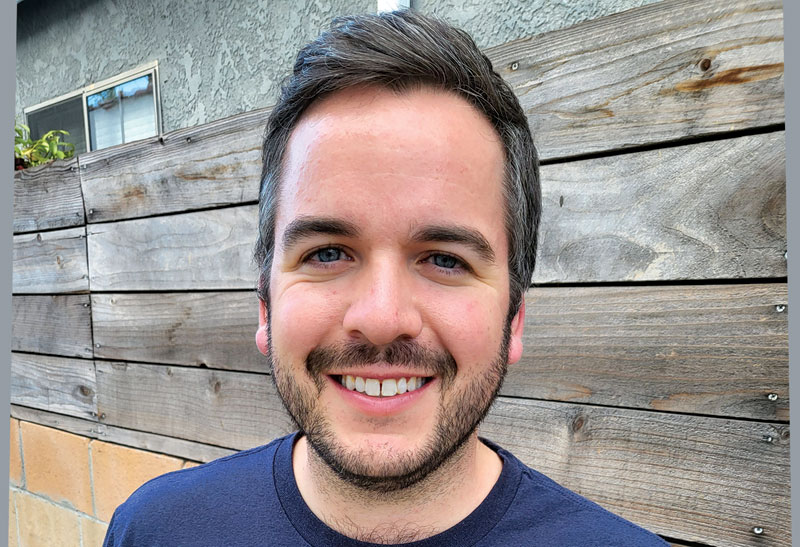Like many California voters this week, Rabbi Hershy Ten, president of the Bikur Cholim Jewish Healthcare Foundation, is grappling with how to vote on the Nov. 8 ballot. Either Proposition 78 or Proposition 79 could directly affect his L.A.-based foundation’s efforts to provide health-related services and referrals to needy and uninsured. Either proposition could help by lowering prescription drug prices. But even for Ten, it’s hard to peer through the electioneering and rhetoric.
One thing’s certain: Ten realizes a lot is at stake.
“I know of a man within the last three months who suffered irreversible liver disease because he could not afford his medication,” Ten said. “We were called after he went into liver failure to assist him in receiving a transplant.”
The question before voters is whether the drug companies should regulate themselves, as laid out in Proposition 78, or whether the state should be granted authority to pressure drug companies into providing discounts, as specified in Proposition 79. If both initiatives pass, whichever receives the most votes becomes law.
In the contest of marketing, at least, the outcome isn’t a close call. The pharmaceutical industry has spent more than $80 million backing Proposition 78 (compared to $1.8 million from Proposition 79’s backers, most of it from consumer, senior and health groups).
Putting the hype aside, here’s what Proposition 78 would offer: Most Californians earning up to 300 percent of the Federal Poverty Level would be eligible for discounted drugs, including individuals earning up to $29,000 a year and families of four living on as much as $58,000.
But the salient feature of Proposition 78 is that it includes no state enforcement mechanism. In the case of Ten’s liver patient, it would be solely up to the pharmaceutical industry to select the relevant drug for a discount, determine the discount price (if any), and choose the length of time to maintain it.
There are no state-imposed consequences if a company chooses to keep prices high.
So if the process is voluntary, what’s to stop drug companies from lowering prices right now? Conversely, if drug companies aren’t lowering prices now, why would they under a voluntary plan?
The industry’s response is that Proposition 78 is needed if corporations are to lower prices as a group while also avoiding anti-trust violations.
“We feel we have an obligation to make our drugs affordable,” said Jan Faiks, vice president for governmental affairs and law with the Pharmaceutical Research and Manufacturers of America (PhRMA), the powerful industry trade group. Faiks added that voluntary (and legislatively sanctioned) drug-discount programs in 26 states demonstrate the good faith of drug manufacturers.
These voluntary programs in other states typically have stricter eligibility requirements, and critics say few meaningful discounts are being offered. California’s version, Proposition 78, is identical to the defunct Senate Bill 19, an Arnold Schwarzenegger-backed bill that was defeated by Democrats in the state Senate in early 2005. At the time, the governor estimated that SB-19 would provide prescription drug savings of up to 40 percent off retail, close to the price that HMOs pay for drugs. Proposition 78 proponents have adopted those figures as their own.
This isn’t the first time that this Republican governor’s public health policy has mirrored PhRMA’s interests. In October 2004, Gov. Schwarzenegger vetoed four bills that would have provided information for Californians on obtaining cheaper drugs through Canadian pharmacies. A few weeks later, PhRMA donated several-hundred-thousand dollars to Californian Republican legislative candidates.
Consumer advocates don’t like much about Proposition 78, including the anti-trust justification for why the industry argues that it is necessary. After all, there would never be a legal prohibition barring an individual drug company from lowering its prices. Nor is there any reason why drug companies would have to engage in illegal collusion to lower prices, said Doug Mirell, board member of the Progressive Jewish Alliance (PJA), which is supporting Proposition 79.
Added Anthony Wright, executive director of the Pro-79 group Health Access: “No attorney general or judge would rule against them if they came together to lower prices. There’s no [anti-trust] precedent for it.”
Proposition 79 supporters contend that PhRMA’s real aim is simply to block Proposition 79 from taking effect.
Faiks of PhRMA’s doesn’t deny her group’s desire to thwart Proposition 79, but she insists that Proposition 78 is worthy in its own right.
Proposition 79, backed by consumer groups, unions and the American Association of Retired Persons, sets the discount rate for drugs lower than Proposition 78 (approaching the price Medi-Cal pays for drugs). It also includes patients earning 400 percent of the Federal Poverty Level rather than 300 percent. And it forbids drug companies from charging “unconscionable” prices for medication.
“There are 8 million to 10 million more people who will be benefited by Proposition 79 than Proposition 78,” Mirell said.
Perhaps most worrisome to PhRMA, however, Proposition 79 punishes companies who refuse to cooperate.
If negotiations with the state over discounts break down, the state could curtail that company’s business with Medi-Cal, California’s $4 billion drug discount program for the poor. Medi-Cal patients would have to receive so-called “prior authorization” by the state to use any drug manufactured by that uncooperative corporation. Under this system, the state would first try to find a substitute drug from a cooperative company.
In other words, under Proposition 79 the poorest segment of the population (on whose behalf the state bargains) would be used as leverage to lower drug prices for the next-poorest segment (who today have no bargaining clout).
Even under Proposition 79, Rabbi Ten’s liver patient would not have been guaranteed a different fate. There’s no mechanism, for example, forcing the state to drive a hard bargain for any particular medication. But if it did, the drug’s manufacturer would not easily be able to say no.
Each camp has its own collection of horror stories and feel-good episodes supporting its proposition. Proposition 78 is modeled closely on a voluntary program in Ohio. Consumer advocates modeled Proposition 79 on a program in Maine, one that PhRMA claims is not working well.
Faiks provided The Journal with a report, written by an independent Maine legislative committee, detailing patient frustration with various other systems of prior authorization. PhRMA also points to legal and administrative barriers, most prominently the likely opposition from the Federal Department of Health and Human Services.
“[The Proposition 79] program will never be approved,” said Faiks, who is well positioned to understand the leanings of the Bush administration, which has regularly sided with drug companies.
PhRMA provided The Journal with several letters from federal health officials to various state Medicaid administrators who, over the past several years, have attempted to expand Medicaid coverage to new groups (such as people with specific diseases or those who earn slightly-above-poverty wages). The letters suggest that President Bush’s administration is loathe to extend Medicaid funds or leverage Medicaid patients to benefit new groups unless a state has hard evidence that the expansion prevents these new clients from entering poverty and becoming eligible for Medicaid regardless.
Mirell, of PJA, asserts that technicalities will not cripple Proposition 79, at least not permanently.
“The Bush Administration will not be in power forever,” Mirell said. “Policies do change from administration to administration.”
Mirell also pointed to the “severability” provision of Proposition 79, which allows other provisions to survive even if some can’t be enacted.
“The fact that it may take some months of litigation to implement Proposition 79 shouldn’t scare people away from voting for it, when the benefits that could accrue are so much greater than Proposition 78,” Mirell said.
And the presence and influence of the industry Goliath shouldn’t dissuade the Davids of reform. “It doesn’t mean we should give up, saying they’re too powerful,” said Wright of Heath Access.
A late August Field Poll indicated that Californians largely support both measures: 49 percent voting yes and 31 percent no on Proposition 78; 42 percent yes and 34 percent no on Proposition 79. When the participants learned, however, that the drug industry is backing Proposition 78, opposition to that measure rose sharply.
“People need to ask themselves, ‘Do you trust the drug companies to voluntarily discount their own prescription drug rates?'” Mirell said.
That’s a question that voters are less likely to hear posed exactly that way, given the imbalance in campaign spending.
When he spoke with The Journal, Rabbi Ten was still trying to sort out the pluses and minuses.
“This requires further analysis,” he said. “It requires more information than is readily available through typical media outlets.”





















 More news and opinions than at a Shabbat dinner, right in your inbox.
More news and opinions than at a Shabbat dinner, right in your inbox.